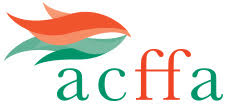ST. GEORGE - Field trials conducted over the past month have shown that AlphaMax, a treatment for sea lice on farmed Atlantic salmon, is working and is having no impact on other marine life.
The New Brunswick Salmon Growers Association met Thursday, August 13 with representatives from various New Brunswick fisheries organizations to provide preliminary findings on the monitoring and research program supporting the AlphaMax® trials in the Lime Kiln, Bliss and Back Bay areas in the Bay of Fundy.
“This meeting fulfills the commitment we made when we met with the fisheries groups in May to share preliminary results as soon as they were available,” said Pamela Parker, Executive Director of the Salmon Growers Association. “We appreciate concerns people can have when new management techniques are introduced so it’s been important to us to talk to people about this program over the past few months. New Brunswick’s provincial vet, Michael Beattie, has also been very supportive by maintaining ongoing communication.”
Regulatory agencies have been monitoring the treatments. Research activity is recording short and long-term impacts of AlphaMax on the marine environment. Preliminary field results show the amount of AlphaMax® being used in salmon cages has no impact on other species and that by the time the treatment is finished, AlphaMax® is virtually undetectable in the water near the cage sites and downstream. The monitoring includes testing the impact on lobster at all stages of development and the lobsters used in the testing will continue to be monitored in a lab for the next four months.
It is essential for industry to have access to a broad range of tools to optimize fish health
management in the prevention of disease and to control parasites. In managing sea lice the salmon farming industry uses natural control measures such as fallowing and temperature variation; however, therapeutants are also necessary at times. Currently SLICE®, or emamectin benzoate, is the only treatment approved by Health Canada’s Veterinary Drugs Directorate for the control of sea lice while other salmon farming countries have access to up to four different treatment options. Alternating a variety of treatment options helps to ensure optimal benefit from each over time.
“A tremendous amount of research was conducted by the industry and by governments to ensure that AlphaMax® would not negatively impact the environment or marine life,” said Parker.
“We are very pleased that the trials on AlphaMax® supported the findings from other
jurisdictions. I think it’s important to remember that New Brunswick fish farmers have a genuine concern about the environment. A broad diversity of natural species is evidence of a healthy marine environment and it’s important that this be maintained – not just because it’s the best environment for growing healthy fish but because it supports a diversified working waterfront and benefits our neighbors too.”
Key findings released today indicate that:
- Monitoring of all treatments by industry was conducted by both federal and provincial
- agencies
- AlphaMax® was effective in treating sea lice (Lepeoptherius salmonis and Caligus
- elongates) with no effect on non-target species
- No disruption to the normal life-cycle of lobster was observed in the field at all stages of
- the lobster’s development; lab observations will continue over the next four months
- AlphaMax® is not detectable outside the net pen skirting during trials and within 10
- minutes following release of the skirting following treatment
- Concentrations of the therapeutant immediately following removal of skirting was less
- than one half part per billion, well below the target of three
- Active ingredient deltamethrin was undetectable within 10 minutes of release either at
- the farm site or down current from the site
CONTACT:
Pamela Parker, Executive Director
New Brunswick Salmon Growers Association
(506) 755.3526
